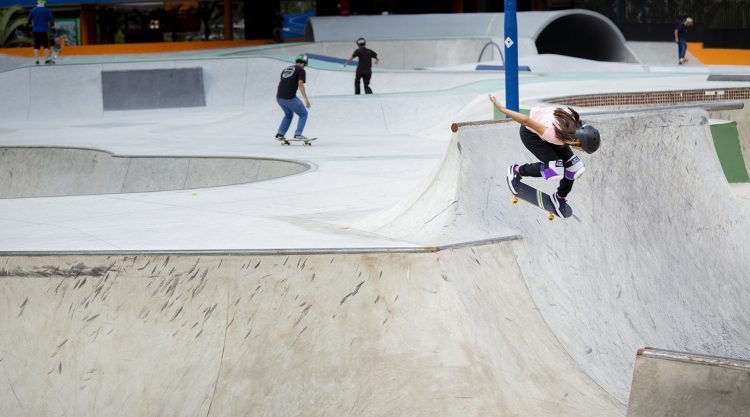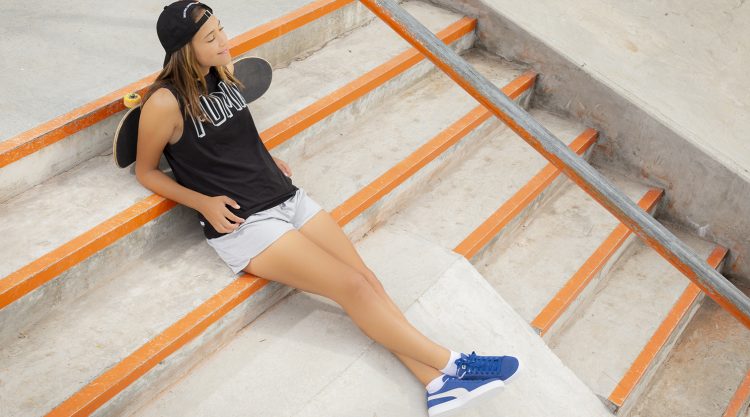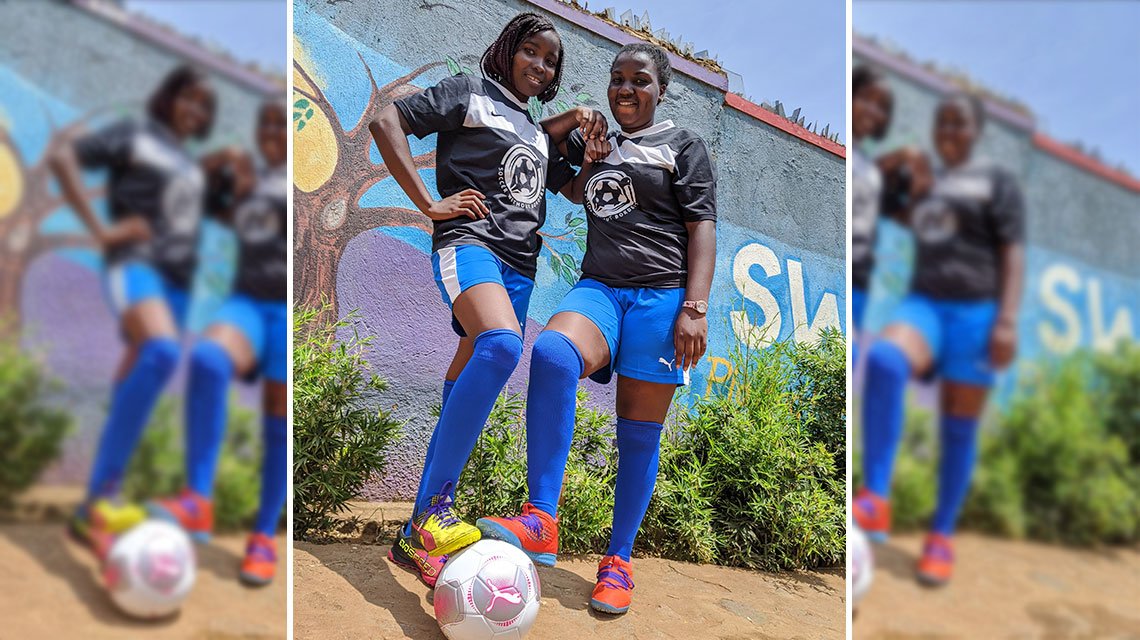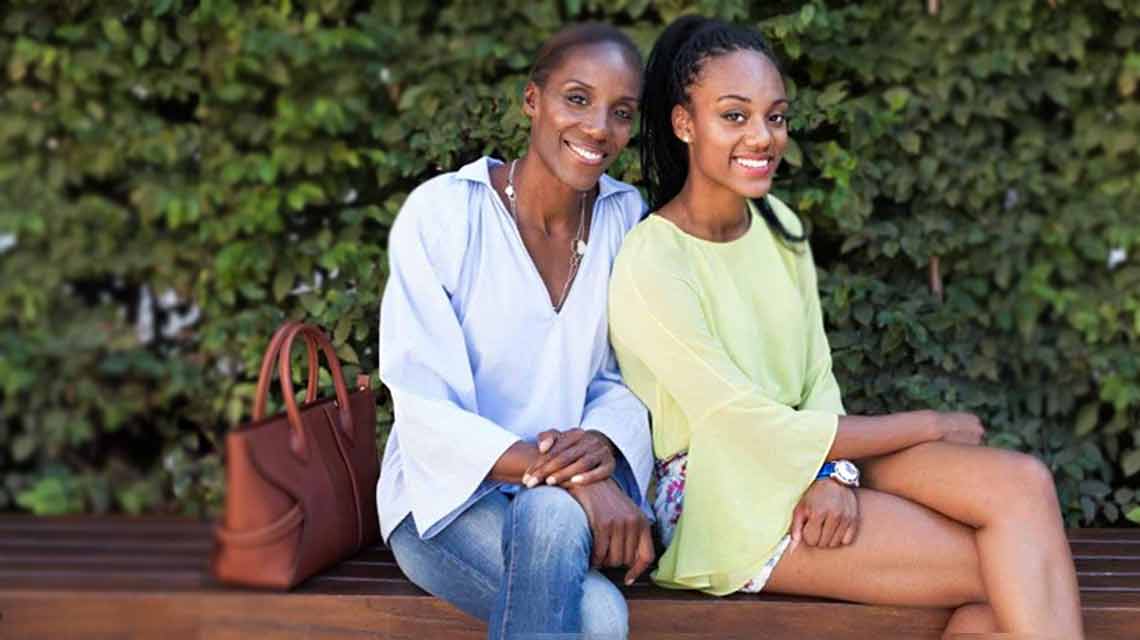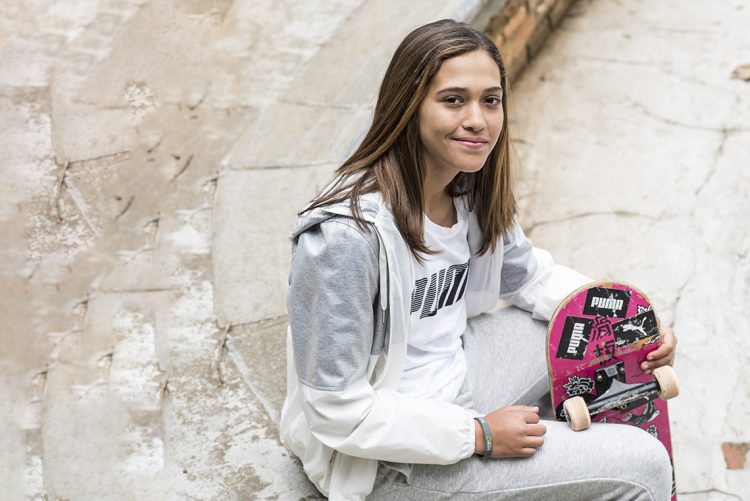
"I used to be
the only girl"
SHE MOVES US: Interview with Brazilian skateboarder Isadora Pacheco
September 6, 2021SHE MOVES US: Interview with Brazilian skateboarder Isadora Pacheco
September 6, 2021PUMA athlete Isadora Pacheco was only 5 years old when she fell in love with skateboarding. Ten years later, she competed on the world stage at the Olympic Games and she has helped make her sport popular in her home country, Brazil. As part of our “SHE MOVES US” series, CATch-Up caught up with Isadora to talk about her sport, her ambitions and how she inspired other girls to take up skateboarding as well.
Isadora Pacheco, 16, was born in Florianopolis, a city in the south of Brazil famous for its 42 different beaches spread around a lush peninsula. “Floripa”, as the locals call it, is well known for its surf spots and has always had a strong skateboarding culture. Isadora grew up near an inn which also had its own skate park. It was there that she first fell in love with the sport.
“I used to go to the beach with my parents and afterwards we went to see some of the best skaters in town flying through the air at the skate park at the inn. I really wanted to have a go as well,” Isadora remembers.
“On Children’s Day, which is when we get presents in Brazil, we went to a shopping center and I picked a skateboard as my present. It was love at first sight. It was all still made of plastic, but I loved it. And that’s when I started to practice,” she adds.
It was then that she first met her coach, who trained with her all the way to the Olympics.
“It all started on my doorstep, literally. I was five years old back then. At the the age of six, my coach organised a small competition at the inn and I took part. It was great,” Isa recalls.
Isadora didn’t spend much time thinking about breaking down gender barriers but just followed her passion for skateboarding.
“It was all quite natural. The people there liked the fact that there was a girl skateboarding with them and they’re all my friends until this day. But I used to be the only girl back then. In fact, I didn’t see many girls on a skateboard until I competed in my first competitions outside of Florianopolis, in São Paulo and elsewhere,” she says.
Soon, things started to get more serious for Isadora when she impressed in her first competitions and people realised that she was very talented.
“It all went quite quickly. I took part in some competitions in Brazil and then, at the age of 10, I was invited to participate in the World Championships. That’s when things started getting serious,” Isadora explains. “When I was 10, I realised that to compete in skateboarding on a global stage was what I really wanted.”
Setting her sights on global success also changed the way she approached the sport, as things started to get a lot more professional.
“There was a lot of responsibility and I think I matured a lot during that period. All of a sudden I had to think about things such as nutrition, which usually isn’t really a thing for skaters,” she says. “But skateboarding is still my hobby. You have to feel the love for the sport. I love meeting up with my friends and go skateboarding. But now it has also become my profession and I have to take it even more seriously.”
Together with her athletic success, Isadora also joined PUMA as a brand ambassador. During competitions, she wears the Suede, PUMA’s classic sneaker with more than 50 years of history.
“It was great when I went to São Paulo for the first time to visit the PUMA offices there. There was a woman who recognised me as a PUMA ambassador. I was so proud, I even took a picture with her,” Isadora recalls with a smile.
She also brought some PUMA products to her friends in Florianopolis and established PUMA as a brand for skateboarders in her home town.
“I wear the Suede. I love it, it’s a really robust shoe for skateboarding. I learned a lot about its history. It’s really interesting to see how it’s been used for so many decades in in hip hop and skateboarding culture as well,” she says.
Ahead of the Olympic Games, Isadora trained four hours a day, working on new tricks and perfecting existing moves. Just before the event in Tokyo, she went to California for a more intensive training session. In Tokyo, Isadora came in 10th and just missed out on participating in the final.
Isadora says that now she sees many more girls who take up skateboarding in her home town and in Brazil as a whole.
“Even at the inn where I started my career you can see new girls arriving every day. They come and speak to me to talk about my experience,” she says. “It was great to see the love that skateboarding got around the world. We showed that skateboarding isn’t a small, marginalised sport.”
Isadora is now fully motivated to get in shape and work on her skills to reach the final and maybe even get a medal at the next Olympic Games in 2024.
“It’s just a few more years until the next Olympic Games. Time will fly and I will have to train hard. I will first focus on the competitions in Brazil because I have to be among the top skaters in the country and among the top 20 in the world to make it,” Isadora explains. “My dream is to reach the final next time, to bring back a medal for my country and make everybody proud.“
